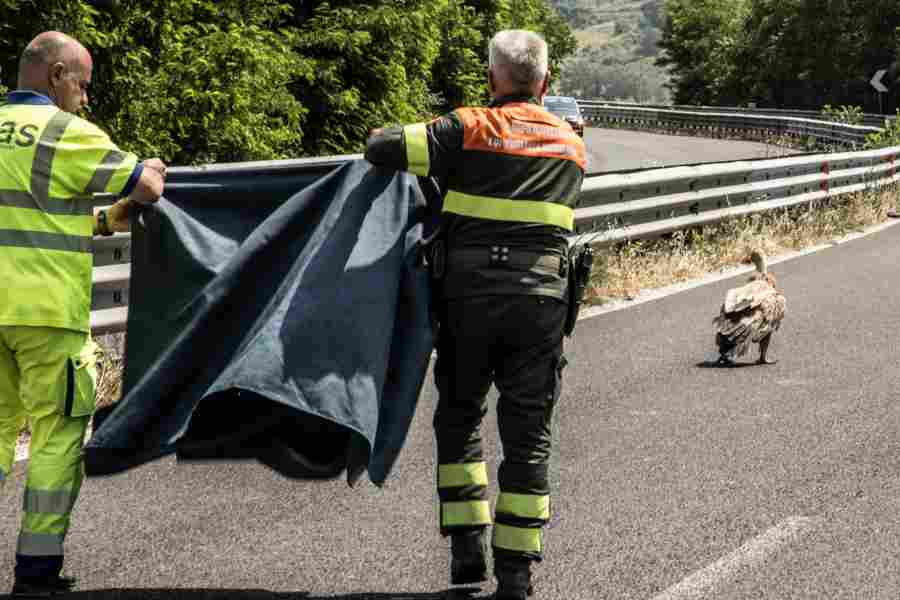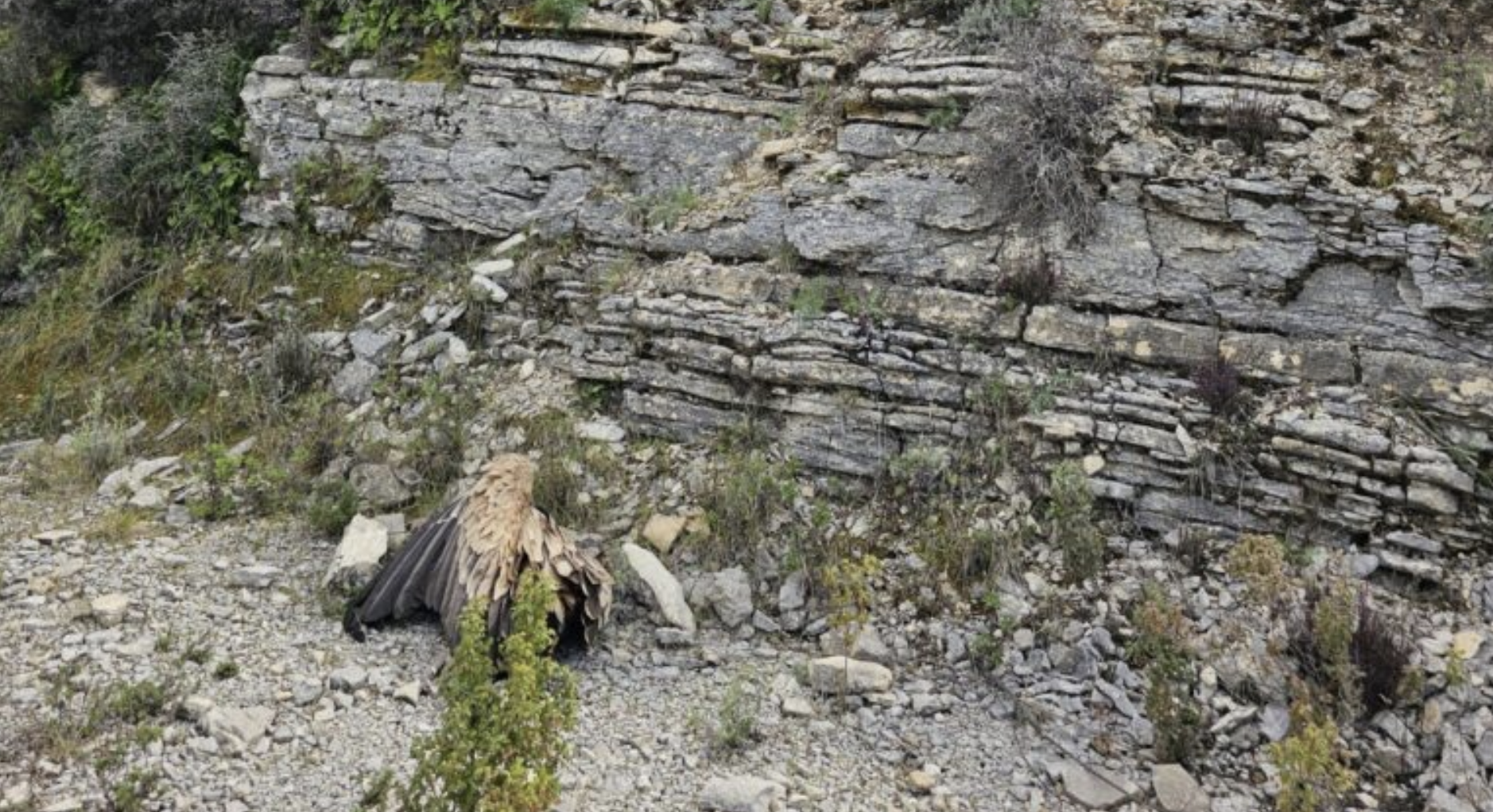Spotted in the city of Taiz in Yemen, a migrating Griffon Vulture fitted with a GPS transmitter, helping colleagues in Bulgaria understand its movements, has been captured having been mistaken for a ‘spy’ by militants in the ongoing conflict in the country.
Tracking Griffon Vultures
Young Griffon Vultures tend to wander during their first couple of years after fledging or being reintroduced to a new area and the population in the Balkans tends to head east toward the Middle East during their travels.
The young Griffon Vulture, which was held by militants in Taiz, was a wildborn bird caught in the Kresna Gorge and fitted with a GPS transmitter in the summer of 2018 as part of efforts by our colleagues in Bulgaria to understand the movements of the recovering population of Griffon Vultures in the country.

After tagging the bird the team at the Fund for Wild Flora and Fauna monitored its movements as it left the Balkan region and head on its travels. In November 2018 the bird had reached the Arab Peninsula making regular visits to Saudi Arabia and Yemen where it was settling for the winter.

Nelson
It is not unusual for a delay in location data being transmitted when there is poor mobile network coverage, however in April 2019 it became clear there was some issue with the bird when the team began receiving hundreds of calls and emails from concerned citizens in Yemen about a vulture that was being detained. These calls came to Bulgaria in the middle of a cholera outbreak that was spreading across the city of Taiz. It transpired that the young bird had been held captive by Yemeni forces on suspicion of spying when the forces mistook the GPS transmitter for a camera. Since it’s capture the bird had been given the name Nelson by General Abdu Farhan al-Makhlafi, the commander of the base where he was being held.

Sadly the detention of this Griffon Vulture is not the first example of the misunderstandings over animal tags in conflict areas, there are countless examples of migratory birds fitted with tags being victims of the tensions between conflicting forces in the Middle East. Just two years ago another Griffon Vulture was detained in Lebanon, which was subsequently returned to Israel. White storks with tags have also been “detained” in Egypt.
Freeing the young bird
Following the outcry from concerned citizens in Taiz the Fund for Wild Flora and Fauna have called for the bird to be released and are working with colleagues in Yemen to secure its rehabilitation. The militia first gave away its tag, but kept the vulture.
Emilian Stoynov, Director of Fund for Wild Flora and Fauna, said the mystery was why General Salem had released the tag but not the bird. “They clearly consider the agent more important than his equipment,” he said.
On the ground in Yemen, the British charity One World Actors Animal Rescues which works to rescue animals in war-torn regions has been working with Hisham al-Hoot a local representative to negotiate the release of the bird.
Hisham al-Hoot talking to a TV news station about the detention of the Griffon Vulture and showing the conditions the bird is being kept in
Meanwhile in Bulgaria the conservationists lobbied the Yemeni embassy, and others in France and Ireland spread the word about Nelson. It worked.
The Yemenis were persuaded that Nelson’s tracker was not there to spy on them and he was released. The indefatigable Mr Hoot transported Nelson to Sanaa, where a vet examined the vulture.

The bird has broken wing feathers and an old injury on his neck. He weighs 4.8kg (10.5lb); To take off and fly he needs to be at least 5kg. His feet are scuffed and the skin on his left ankle shows abrasions from being tied up.

The vulture is being fed with meat and water every hour to try to build him up. In six to eight weeks, if all goes well, he will be strong enough to be released to start the long migration back to Bulgaria.
We here at the Vulture Conservation Foundation would like to join our colleagues at the Fund for Wild Flora and Fauna in thanking the people of Taiz who, despite the extreme hardships caused by the ongoing civil war in the country have reached out in concern for this bird.
Update 20/04/19
Since publication the plight of the young Bulgarian Griffon Vulture has been making headlines across the world including the BBC, Daily Mail and The Times of London.
BBC – A Bulgarian vulture’s odyssey into Yemeni war zone
The Times – Nelson the wayward vulture held as enemy spy by Yemen
Daily Mail – Migrating vulture is seized as a SPY by militants in Yemen after they spot a wildlife group’s GPS tracker on its leg
The Australian – Winged ‘spy’ Nelson a hostage to paranoia





